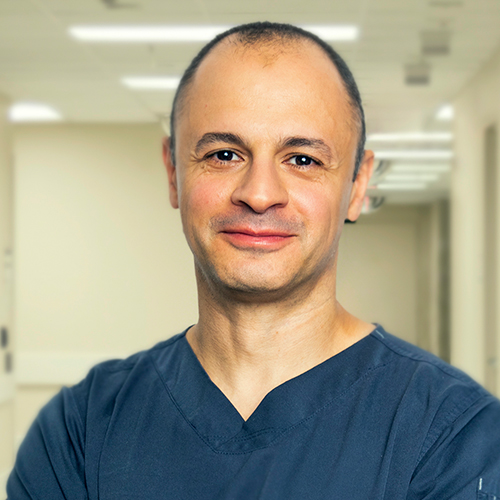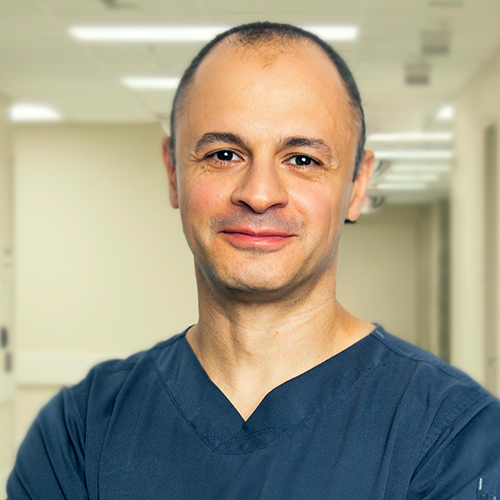
Mother's Own Milk Versus Donor Human Milk in the NICU: Practical Recommendations for Individualized Care
The provision of adequate nutrition for premature infants is crucial for their growth and development. Mothers' own milk and donor milk are two options for providing nutrition to these infants. This presentation will compare and contrast the two options, focusing on their nutritional composition, the potential benefits to the infant, and the practical considerations for families and healthcare providers. Mothers' own milk is the ideal source of nutrition for premature infants, as it is specifically designed for their needs and provides all the necessary nutrients, hormones, and antibodies that the infant requires for growth and development. Additionally, mothers' own milk has been shown to reduce the risk of infections and improve outcomes for premature infants. Donor milk, on the other hand, is a valuable alternative when mothers' own milk is not available. Donor milk is screened for contaminants and pasteurized to reduce the risk of infection, but it may not contain the same composition of nutrients and protective factors as mothers' own milk. In this presentation, the use of mothers' own milk and donor milk will be discussed, and practical recommendations for families and healthcare providers will be provided to ensure that premature infants receive the best possible nutrition.
This presentation was originally offered at our GOLD Neonatal Online Conference 2023.


Prof EL-Khuffash is a Consultant Neonatologist and Paediatrician. He is a qualified International Board Certified Lactation Consultant. His two primary clinical and research areas of expertise are heart function in neonates and the promotion of breast feeding, and breast feeding support, to new mothers. He also has extensive expertise in general feeding issues encountered by babies over the first few months.
Prof EL-Khuffash sees families for prenatal breast feeding and fetal anomaly consultations and postnatal infant assessment, 2 and 6 week checks, and breastfeeding/general support including early irritability and reflux in his consultation rooms in the Rotunda Private Clinic.
Prof EL-Khuffash has considerable knowledge of breast feeding medicine and experience in providing antenatal and postnatal breast feeding advice and support to new mothers. This includes identifying and addressing challenges to breastfeeding in both the mother and the baby. He also specialises in general feeding difficulties and early feeding issues encountered by babies.
Prof EL-Khuffash graduated from Trinity College, Dublin in 2002 and enrolled in the Royal College of Physicians of Ireland paediatric specialist training scheme in 2005. He completed a Doctor of Medicine (MD) degree in University College, Dublin in 2008 and his neonatal specialty training in Toronto, Canada (2009-2011). Following this, he was appointed as a consultant Neonatologist and Assistant Professor of Paediatrics at the University of Toronto in January of 2011. He obtained a diploma in clinical epidemiology during his time in Toronto. He is the recipient of several national and international research awards, with international peer reviewed publications and keynote presentations and the lead for cardiovascular research, supervising several post graduate PhD candidates.
Topic: Mother's Own Milk Versus Donor Human Milk in the NICU: Practical Recommendations for Individualized Care - [View Abstract]
2. Describe the implications associated with both options, and to be able to select the best choice for a premature infant based on individual circumstances.
3. Explain practical recommendations for families and healthcare providers on how to ensure that premature infants receive the best possible nutrition, including the importance of collaboration and ongoing research.
Accreditation
CERPs - Continuing Education Recognition Points
Applicable to IBCLC Lactation Consultants, Certified Lactation Consultants (CLCs), CBEs, CLE, Doulas & Birth Educators. GOLD Conferences has been designated as a Long Term Provider of CERPs by IBLCE--Approval #CLT114-07. This program is approved for 1 L-CERP.
CMEs - Continuing Medical Education Credits for Physicians & Nurses
The AAFP has reviewed the activity and deemed it acceptable for AAFP credit. Term of approval is from 05/30/2023 to 05/30/2024. Physicians should claim only the credit commensurate with the extent of their participation in the activity. This activity is approved for 1 AAFP Prescribed CME credit.
Nursing CEUs - Nursing Contact Hours
This nursing continuing professional development activity was approved by the American Nurses Association Massachusetts, an accredited approver by the American Nurses Credentialing Center’s Commission on Accreditation for 1 Nursing Contact Hours.
- View this presentation in its entirety, under your individual GOLD login info
- Successfully complete a post-test (3 out of 3 questions correctly answered)
- Fill out the Evaluation Survey
If you have already participated in this program, you are not eligible to receive additional credits for viewing it again. Please send us an email to [email protected] if you have any questions.
Additional Details
Viewing Time: 2 Weeks
Tags / Categories
(IBCLC) Development and Nutrition, (IBCLC) Physiology and Endocrinology, Donor Human Milk for Preterm Infants
How much time do I have to view the presentations?
- The viewing time will be specified for each product. When you purchase multiple items in your cart, the viewing time becomes CUMULATIVE. Ex. Lecture 1= 2 weeks and Lecture Pack 2 = 4 Weeks, you will have a total of 6 weeks viewing time for ALL the presentations made in that purchase.
- Time for viewing the talks begins once you purchase the product. For Live Webinars & Symposiums, the viewing period begins from when the live event takes place. Presentations can be accessed 24/7 and can be viewed as many times as you like during the viewing period.
What are bundled lectures?
- Presentations may be available individually or via a bundled package. Bundled lectures are a set of lectures that have been put together based on a specific category or topic. Some lectures will be available in both individual and lecture form, whereas others will be available only via a bundled lecture pack.
Will there be Handouts?
- YES! Each lecture comes with a PDF handout provided by the Speaker.
Some lectures include a Q&A, what does that mean?
- During our online conferences, presentations that occur live are also followed by a short 15 minute Question & Answer Session. The Speaker addresses questions that were posted by Delegates during the presentation. We include the recording of these Q&A Sessions as a bonus for you.
How can I receive a Certificate?
- If this presentation offers a certificate, once you are done viewing the lecture or the lectures within a bundle, submit your attendance record in order to be able to download your certificate. You'll be able to see which credits are offered for the lecture by hovering over the "Credits Available" link within the "Speakers & Topics" tab.
Professionals that selected this package also viewed

|
|

|







